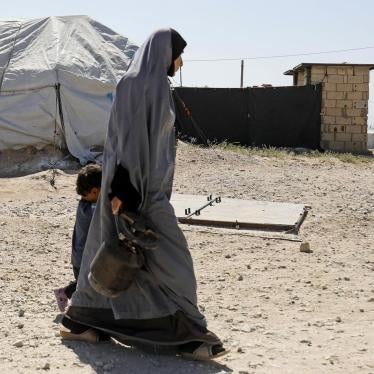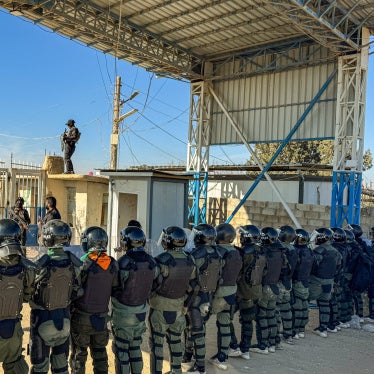The Europeans have spoken. After a recent high-profile visit of European Union officials to Harare, the EU said it will not lift targeted sanctions on Zimbabwe and that it was premature to resume development aid to a country that had not made needed reforms.
The European case is solid. Although a coalition government was formed more than six months ago, there has been no meaningful change in the country. The political balance of power remains severely lopsided in favor of Robert Mugabe's ZANU-PF party. He continues to control Zimbabwe's security forces and judicial institutions, and uses them to attack members of civil society and Morgan Tsvangirai's Movement for Democratic Change, the former opposition party and current partner in government.
Having seen for themselves, the Europeans know that, rather than helping promote change in Zimbabwe, a flood of development aid for the new government may simply reinforce Mugabe's institutions of repression. The Obama administration should follow the Europeans' lead. Mugabe, Zimbabwe's octogenarian president, may be hoping that the new team in Washington feels the need to "do something" on Zimbabwe. He may hope that the Obama administration will overlook his track record of ignoring agreements he does not like.
Human Rights Watch recently issued a report on Zimbabwe's new government ("False Dawn"). It shows that state agents affiliated with ZANU-PF continue to abduct and kill MDC activists with impunity, and to arrest its legislators on spurious charges. Zimbabwe's oppressive media laws remain in force. Illegal invasions of commercial farms are increasing, and the military has used child labor to mine diamonds illicitly for its ZANU-PF bosses.
Before Zimbabwe's complicated power-sharing deal was put into effect in February, southern African leaders pressured Tsvangirai, now Zimbabwe's powerless prime minister, to accept the pact. They promised that it would be implemented in letter and in spirit.
Tsvangirai attended a regional summit of the same leaders this month. He arrived with evidence of Mugabe's failure to honor the most basic elements of the deal. What did the region's leaders do? With the Congolese president, Joseph Kabila, in the chair, they refused Tsvangirai the time to air his concerns. However, they did find time to demand that the West lift targeted sanctions aimed solely at Mugabe's inner circle, the people who instigated Zimbabwe's lawlessness. So much for solidarity with Zimbabwe's people.
But Mugabe is in a Catch-22. He wants to deny the MDC any real power and slowly strangle it out of government. Yet he must maintain a façade of sharing power if he hopes to attract urgently needed Western development aid. Mugabe wants aid flowing into the central bank, which he still controls in breach of the power-sharing agreement.
Tsvangirai has been lobbying Washington and other Western capitals, arguing that Western aid will empower moderates in ZANU-PF and marginalize hard-liners opposed to sharing power. But no-one seems able to identify who the so-called ZANU-PF "moderates" are.
Western humanitarian aid, food, and medicines have kept millions of Zimbabweans alive for several years. The US and Europeans should continue to give this desperately needed help through international agencies. But throwing good money into an unreformed government now will not help Zimbabweans who most need it. If Western aid officials may think they can prevent money from being diverted, they should ask the South African government what happened to $30 million it gave Zimbabwe in January.
The ball is in Mugabe's court. ZANU-PF should make the first move and implement in full the power-sharing agreement and restore the rule of law. Those responsible for human rights violations should be held to account. Corrupt officials should be replaced and charged, and made to return stolen assets.
And before the US hands over a single dollar of development aid, there should be an internationally supervised program of government reform and audit. Media restrictions should be lifted completely so that Zimbabweans can scrutinize their elected and unelected officials. This list shows just how far Zimbabwe still has to go.
Barack Obama has sent a powerful signal to Africans that he will make good governance the basis of US engagement on the continent. His administration has made a positive start in places like Kenya. But Zimbabwe is where the rhetoric, and any substance behind it, will face its first serious test.
Jon Elliott is Africa Advocacy Director at Human Rights Watch.






